

Damion Smy
Ford posts biggest loss since the Global Financial Crisis
2 Hours Ago
How can we make young drivers more confident and capable behind the wheel? Reforming our outdated licensing system is part of the answer. Here’s why.

Senior Contributor
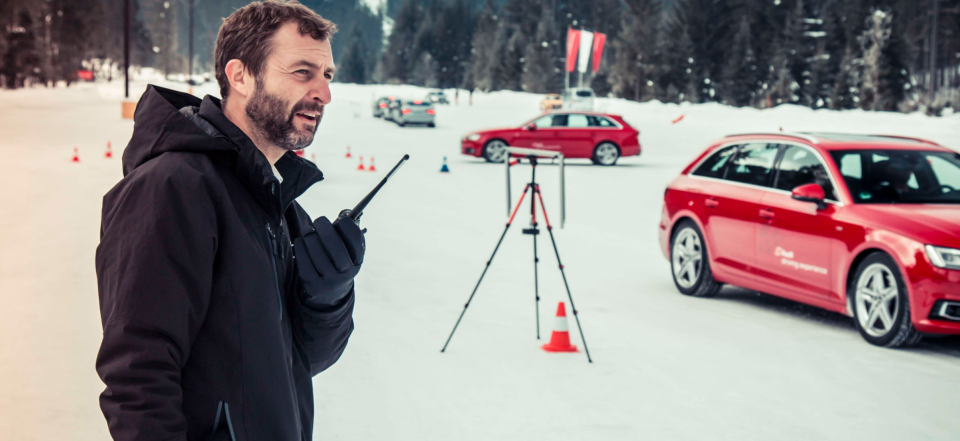

Senior Contributor
It’s not a stretch to look at many Australian motorists and see the Dunning-Kruger effect in action. You know, that cognitive bias where those possessing the merest skerrick of knowledge overestimate themselves.
Note: This feature story is from our back catalogue, but has been dusted off for a revisit just in case you missed it.
We’ve all seen atrocious behaviours on the road. Hopping behind the wheel can enhance a person’s underlying psychology in terrifying, alarming, or occasionally pitiable ways.
One must also consider driver skills. Training to pass a license test here generally requires meeting a threshold of logbook hours under supervision from any full license holder – usually a parent or guardian.
Of course, that supervisor themselves inherited bad habits and misunderstandings from their own underqualified ‘teachers’ and let them grow and evolve. It’s a cycle of ingrained bad driving that perpetuates generationally.
This editorialising is why there’s an argument to mandate professional training for those seeking to get a license, to break the cycle and equip teenagers with knowledge and context that make them more capable, and more patient.
Hand on heart, who reading this honestly thinks they were a sensible and smart driver at 17 or 18 after passing Australia’s licensing test? I sure wasn’t.
In some ways it’s somewhat surprising that I’m here typing. This is a common refrain.
Australian government data says about 20 per cent of road deaths last year were people aged 17-25. Correlation and causation aren’t always aligned, but would training young people to drive more effectively reduce this ratio?
We’ve spoken with Steve Pizzati on this issue. Steve’s company Pilota Sportiva creates customer driver programs and driving events for car brands like this one from Audi, but he has been teaching all manner of people how to drive, for decades.
You may know Steve from his time as a co-host of Top Gear Australia, and for his weekly radio show on Melbourne’s 3AW.
Steve is a passionate advocate for improving the way we teach people to drive, which is why he’s an ideal subject for our latest weekend Q&A profile. If we had a few beers and weren’t in COVID-19 lockdown, I think we could have spoken half the day.
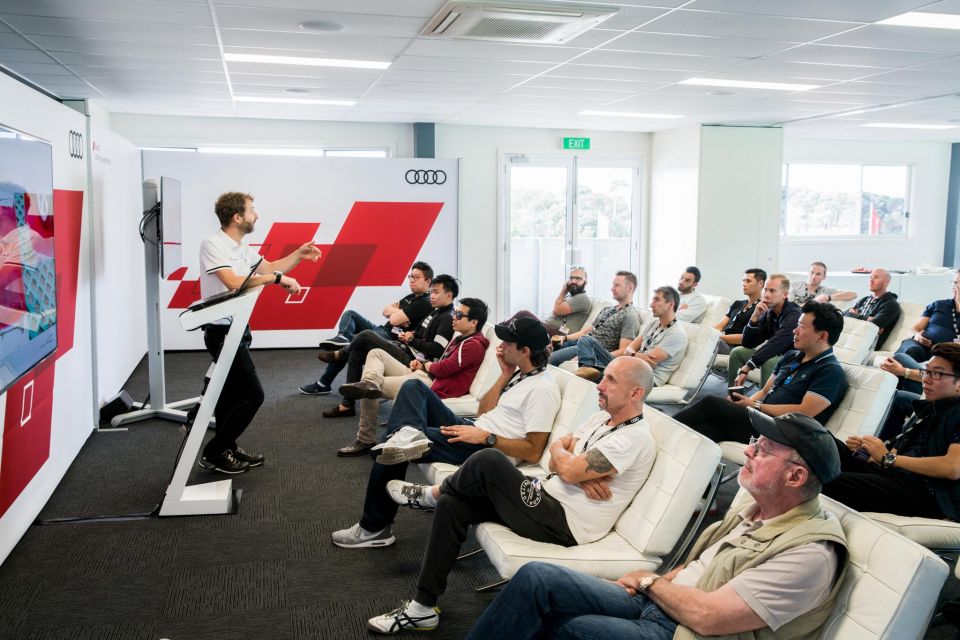
Steve Pizzati: So I started with what a lot of people would call advanced driver training, which isn’t really advanced – most of what we teach is what we think should be taught in the first place – as a foundation for my business.
I started in 1996 as a driver trainer, which was the same year that I got my CAMS license and for me, that was part of the motivation. I wanted a career in motorsport and loved driving and I just wanted to be driving around tracks, around people that were better than me frankly. Like they said, ‘learn from the best’.
I ended up with a job with a company called Drive Skill… and their main contract was to teach the Department of Human Services in Victoria, their wheelchair-bus drivers. My first teaching jobs were literally teaching public servants to drive wheelchair buses.
They talk about if you want to get somewhere in life you should be an intern or paperboy or sweep the shop floor… I mean, I’m 21 years old here, a slightly hyperactive kid who loves driving, and I’m teaching in my mind incredibly old, seemingly ancient public servants about something they’d already been doing for years!
So it taught me mainly that the driving side of it was not that difficult, it was more how to relate to people and how to break stuff down into ways people can understand, being a good teacher, which I think has served me very, very well.
It’s also served me well that I got into motorsport as an adult. I got my CAMS license at 20, did some go-karting at 18, but it was mostly from 20-onwards.
Unlike most race drivers who get taught at a very young age, it kind of comes very naturally to them. They often find it difficult to communicate to people about what they’re doing because they just do it so naturally.
What that meant was, as a coach, I think I was a lot more prepared, because I was teaching very surly public servants and learning this stuff as an adult.
SP: Whenever I’ve got young instructors coming along, I say this. We’ve got one of the hardest teaching jobs on earth. It’s a problem the world over, but in Australia we’ve got this awful [prevailing attitude] of “I’m a great driver, and everyone else is rubbish. Everyone’s a maniac except for me”.
I give people the analogy of, imagine deciding you want to learn to play the guitar, and you go and get your first lesson, and the guitar instructor goes ‘what I want you to do is put the guitar on your knee, and then put your fingers here’ and then you tell them ‘shut up, what would you know?’.
That’s the kind of thing we are faced with. I’ve got Bathurst winners on my team, multiple national champions, and they’ll come up to someone and say “maybe move the seat a little closer, or maybe hold the steering wheel like this”, and the resistance we get, I literally want to record it!
You just can’t believe the kind of resistance we get. Apart from the fact that as an instructor, it’s freaking Luke Youlden! Everyone thinks they’re above-average…
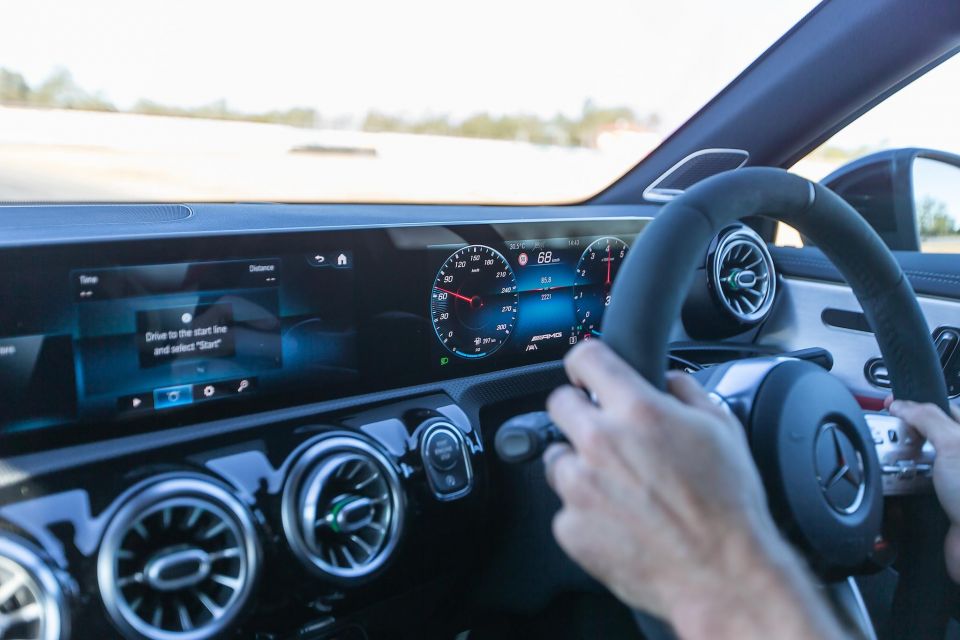
SP: Haha. It’s the motoring journalist bell curve. The more experienced you get, the more they’ll say they’re not that good… Ask Jeremy Clarkson, without dropping a big name, those guys will tell you flat out they’re not good. And I think that one’s down to the old adage of, the more you know, the more you realise how much you don’t know.
SP: Yeah, that’s exactly right. You pick up a tennis racquet for the first time, it looks easy when you see Federer just smack it around, but then the more you start playing you start thinking “holy crap, that’s mind blowing”.
You don’t even know what questions to ask when you first start driving. “What Lewis [Hamilton] does, doesn’t look that different to what I do driving every day, so how good is Lewis?” Well, you don’t know what questions to ask. That’s a common thing in almost any human endeavour.
SP: I’m yet to meet an Australian who thinks the driver training system in Australia is adequate.
Every single person you ever meet will tell you that it’s too easy to get a license, it should be trickier, which basically means… and it’s hard to admit, but it’s an elitist comment because what they’re saying is, “I should be allowed to have a license, but everyone else should not”.
And it’s back to this overconfidence that Australian drivers have which is almost the peak of that globally. I’ve taught in America, in Asia, definitely taught in Germany and Scandinavia as a part of what I do… Everyone I know says the driver training system is rubbish, that’s universal agreement there.
So what we’re doing is we’ve set up a system where a person gets a learner license, they do it at 16 and 17, then they get a license on their 18th birthday, and from there do nothing more. Not a single thing. They might pick up a little bit of experience, but in terms of tuition professionally – zero.
And then 20 or 30 years later, they have a kid who grows up and now, without any other training from the time that they got a license, are now going to be training them.
So the system is rubbish, and you agree was too easy, so your training is rubbish. And on top of that, you haven’t done anything good or bad for 30-odd years. That in itself is already just about as logical and straightforward an argument that you’re ever going to get.
The other thing is you’ve got to remember is, you’ve been teaching your kids since you drove them home from hospital. They’ve been watching, kids are sponges and we all know this… really unbelievably good at learning stuff.
They have been watching you for 16-odd years, then all of a sudden you go, “Now son, what you do is…” and they’ll think, “Dad, that’s bull, because you don’t do that”. So you’ve already set up two sets of standards here.
Instantly you set these kids up to have this internal conflict as to what is correct.
The other argument can be compelling. I’ll say to someone [who disagrees], “Okay, you’re an amazing driver and a great instructor, that’s fine. What about the person sitting next to you in traffic? And they’ll say, ‘Oh, he’s an idiot’. ‘Okay. Would you allow him to teach his kids?’”
So now you can use that argument. As a system to teach people, would you be happy with all these other supposed idiots on the road, teaching a kid how to drive, passing on their bad habits? “Of course not”, they’ll say.
You can use all of these arguments, frankly, to say that simply put, parents should not teach kids, it’s as simple as that. It’s just a moronic thing, a statistically dangerous thing we do. We’re allowing dangerously under-qualified people to do it, when it should be just in the hands of professionals.
A lot of countries do that, like your Scandinavian countries. It’s not even a question. There’s not even a cost issue. For 120 [logbook] hours, what’s the fuel cost for that? You could spend that on driver training, our driver training days are a couple hundred bucks.
So you could do five days with us or 120 hours with your parents. I think I know which one is going to get the better result, frankly.
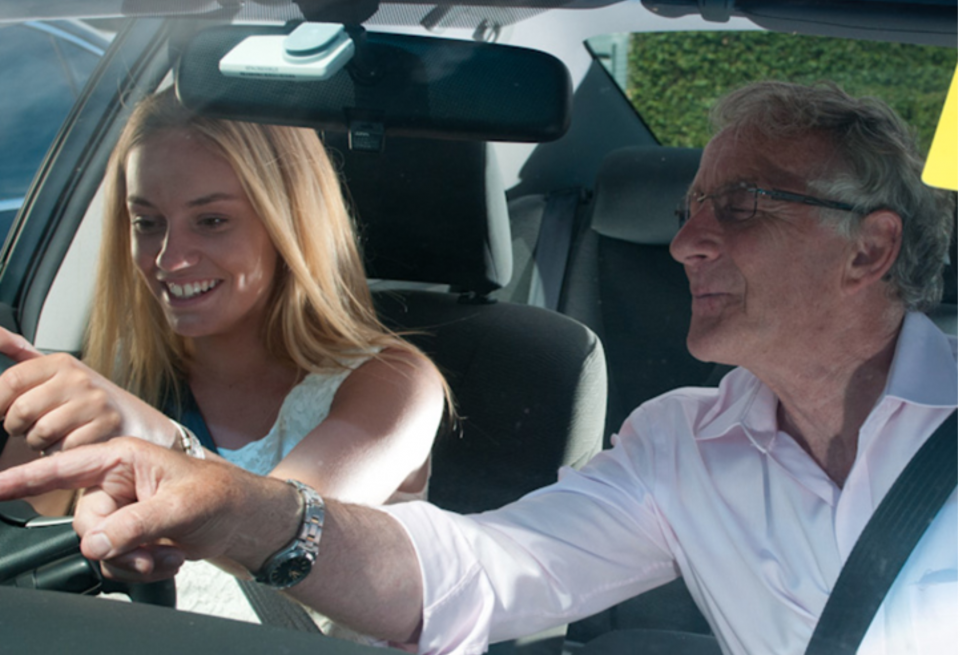
SP: I would prefer just the professional, because what ends up happening is you then kind of erode [what was learned]. Basically speaking, until we break the cycle, I wouldn’t be happy to do that. It can unravel the message.
SP: Would you feel the same way if it had been Luke Youlden teaching you how to drive? It doesn’t have to be someone necessarily famous, but if you had confidence, if you had faith in the ability of the instructor, I think you’d be quite different.
Most people have this image of the guy with a clipboard, little glasses on the nose, teaching you how to drive, and so you’ve got zero respect for this person. And on top of that we’ve set the system up to not have respect for them, because what everybody knows is that that person is there to help you pass the test, not to become a great driver.
But if you know that this person is a great driver, then you’re going to instantly go, “Hang on, I want to learn what you’re doing”. If you go to a piano teacher who just says “do this”, you’re not going to respect, but if they then play some amazing Tchaikovsky or whoever…
So you’re right, you’re going to have that rebellious thing. But if you’ve got good trainers, and they’re in an environment where we can show you why you need to know emergency recovery skills, braking and swerving and all that sort of meat and potatoes, really simple stuff, just by virtue of being around that environment, having an instructor that you trust and respect the skills of [will help alleviate this].
SP: It’s hard for us, as professionals in this time, to keep on top of all the new stuff that comes out every year. It’s our passion, that job is what we do. But you’re sort of on the treadmill, trying to make sure you’re really on top of it, understanding how it works.
I think it’s really common that most people don’t understand. They’ll freely admit that their car has got all this stuff “and I never use it, it’s annoying, it cuts in”.
Consider now-mandatory stability control systems. Now, perhaps someone has never felt that before, no one’s really explained it to them really, yet it’s going to come in at one of the most critical junctures of your life, and they’ve never felt what it does, don’t know how it operates, and don’t even know its limitations…
There’s none of this in the road books across Australia. The page on skid control is just literally a couple of paragraphs on braking or maybe, you know, “don’t upset the car” or some sort of really vague term, let alone talking about AEB, lane-keeping aids, adaptive cruise control, whatever else we’re going to have in the next few years.
Nothing, not even a single mention of any of that. It’s patently obvious that needs to be covered.
Then the other side of it is the driver skills, giving them the opportunity to understand just some real basics. Whenever you talk to a government body about this, or even a high level researcher, there’s this divide out there between attitude-based training and skills-based training.
They’ll nearly always pull out these stats about skills-based training being worse for people, if you teach them how to recover from a skid they’re going to go out there and do skids and all this other stuff… but the majority of that data seems to come from race drivers, believe it or not.
So they’ve done, in America in particular, a whole bunch of research on race drivers, and they have high crash rates, but what we’re teaching is different to that. They never correlate people who have done this style of course, defensive road-based training, which tends to skew the numbers.
None of the driver training you do in Victoria requires emergency braking, swerving, that sort of stuff. They say it’s dangerous, if you include that people go do skids everywhere.
But you go for a motorbike license and you have to do an emergency stop, and you sort of go: “Hang a minute guys, if that’s so dangerous and why are we teaching it on motorbikes, which are far more vulnerable? Why are we teaching them how to do emergency stops, and swerves, and counter-steers?” Which one is it?
And people often think “of course you’re going to say that, it’s your business”. But I say it because it’s the right thing. It’s not because this is just a product I’m trying to flog, it’s actually what we think should be included.
So you need to focus on attitudes absolutely, but you also definitely need that skills component because you can read about it all you like, but until you feel it, it makes no sense, you don’t know how your car behaves.

SP: It’s the Scandinavian countries, having taught over there, and probably Finland if you need a single country. That test is more elaborate, more in-depth I suppose is the better way to describe it. But any of those Nordic countries such as Sweden, and Norway as well.
It’s not that they are… necessarily all that different to us, I think it’s by virtue of the environment that they live in. Someone has understood that “if we live in a country where people are sliding on ice, we should teach them how to control this!” It’s much more in your face because they’ve been dealing with these things on a far more regular basis than we do.
The problem here is that we’re obviously a clement country, driving for many of us is, by and large, sitting on the Nepean Highway, and it’s only when you are faced with an awful situation that you go “hang on, the cupboard is bare, I have no idea what to do here”.
Most people can’t even tell you what they did [in an emergency]… you look at the black box later and see they were hard on the throttle, though they are swearing black and blue they were on the brake.
Germany is good. They’ve obviously got the famous Autobahns, high speeds, which is something we don’t do.
The top speed you do on your testing in Australia is 60km/h, or typically 58 because 61 is an auto fail. And then the minute you get your license, you’re allowed to do nearly double that. No one’s seen you do it, you could have bullshitted on your 120 hour logbook. No official assessor has seen your ability to just even merge on a freeway, or change lanes, or anything like that, and yet you’re allowed to do it.
SP: I sometimes ask guys – not girls as often, typically guys – “Who’s surprised they made it to their 25th birthday?” And 90 per cent of hands come up and you know, it’s funny now. But we both probably have mates who didn’t make it, that’s what we’re talking about.
Someone doesn’t have a son anymore because we’re undercooked, we joke about it because we survived it, but we shouldn’t be surviving it, you know what I mean?
SP: So all the stuff you’re talking about is all rooted in this whole “I’m better than you” crap, where we fight each other at every opportunity, it’s all rooted from these feelings of superiority, founded in the fact that we just have zero respect for each other – and we have zero respect for each other because we all agree the license isn’t worth the thing it’s printed on.
So, I used to fly. And a pilot would never treat another pilot that way because there’s an instant affinity with that other person, because a pilot’s license is a hard thing to get.
We are just awful to each other for no other reason. Imagine someone behaving in normal life as they do on the road, imagine walking on a footpath and trying to shove past a little old lady with a walker? Everything’s flipped on its head.
SP: That’s exactly it.
Interested in reading more of our Q&As?Check out the full set here.


Damion Smy
2 Hours Ago


Damion Smy
3 Hours Ago
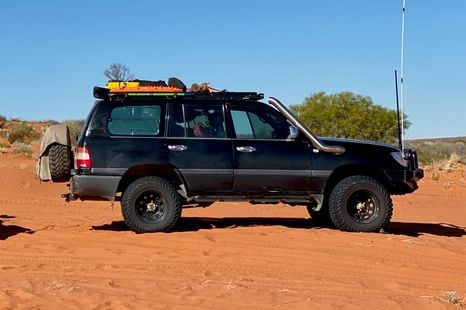

Ben Zachariah
5 Hours Ago
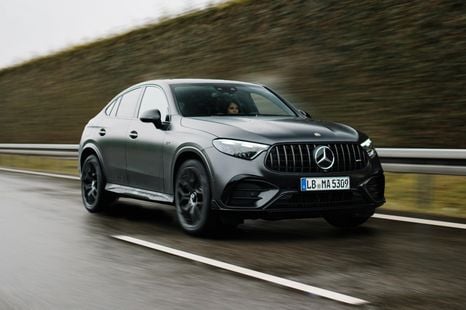

William Stopford
6 Hours Ago


Damion Smy
8 Hours Ago
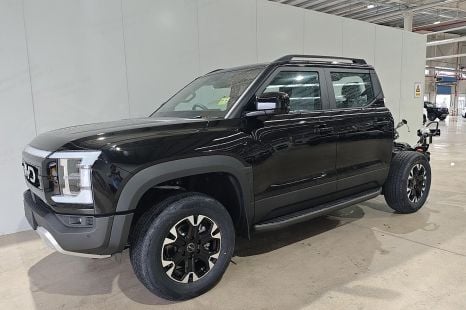

William Stopford
9 Hours Ago
Add CarExpert as a Preferred Source on Google so your search results prioritise writing by actual experts, not AI.